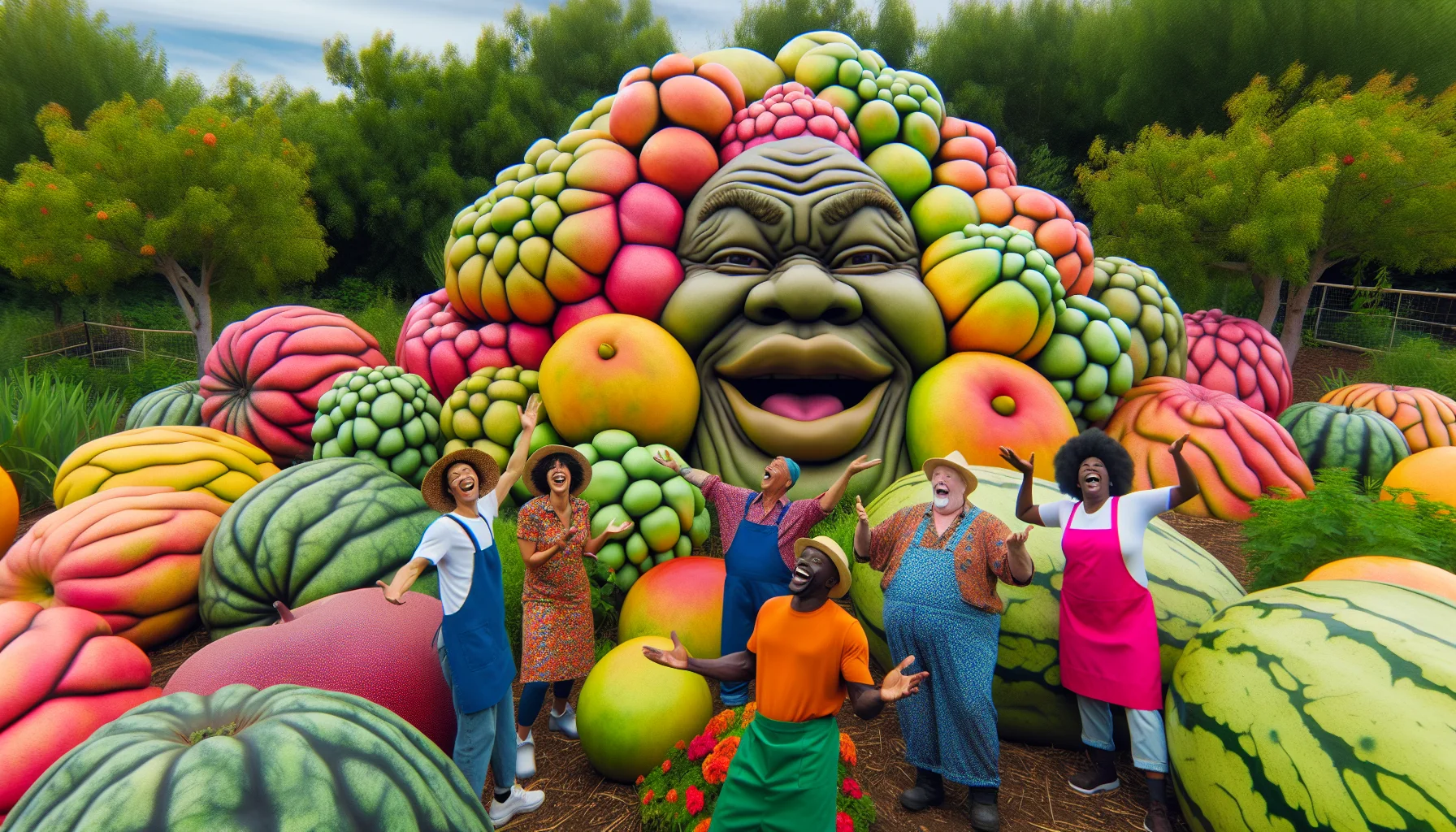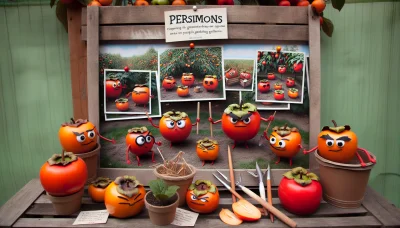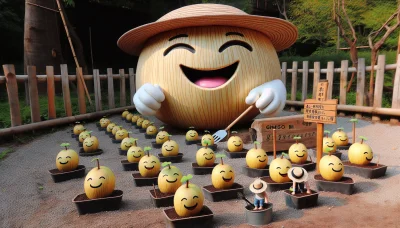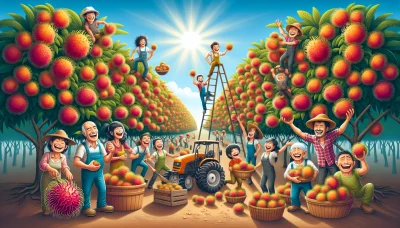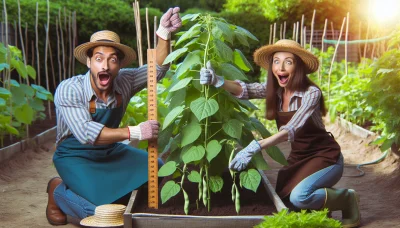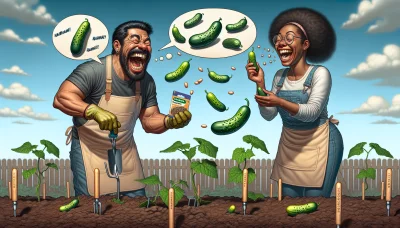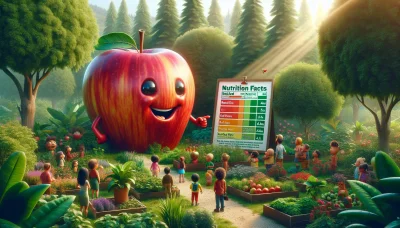Gross fruit Quiz
Test Your Knowledge
Question of
Understanding Gross Fruit: An Overview
Gross fruit, in the context of gardening, refers to fruits that have not developed properly and often exhibit physical deformities, discoloration, or signs of disease. These abnormalities can result from a variety of factors including inadequate pollination, nutrient deficiencies, water stress, or pest and disease damage. Understanding the causes of gross fruit is crucial for gardeners looking to improve their fruit production, as it allows them to address the underlying issues and implement better care and management practices for their plants.
Common Types of Gross Fruit
- Durian: Known for its pungent smell, which some describe as similar to rotten onions or raw sewage. Its taste, however, is sweet and creamy to those who can get past the odor.
- Century Egg: Although not technically a fruit, this preserved egg is often lumped into the category of gross foods due to its strong ammonia scent and its dark, gelatinous texture.
- Gac Fruit: With a spiky outer shell and intense red interior, this fruit is off-putting to some due to its very bitter taste when not fully ripe.
- Noni Fruit: Also known as cheese fruit for its pungent aroma and taste, which is often compared to spoiled cheese.
- Bitter Melon: True to its name, this fruit is incredibly bitter and is often used in traditional medicines rather than eaten for pleasure.
- Kiwano (Horned Melon): Its bright orange, spiky exterior encases a green, jelly-like substance with a tart taste and texture that some find unappealing.
Causes of Gross Fruit in Your Garden
Fruits might turn gross or undesirable in your garden due to a variety of reasons. One common cause is inadequate watering practices, either too much or too little, which can stress the plants and lead to poor fruit quality. Nutrient imbalances in the soil can also affect fruit development, making them taste bad or grow improperly. Pest infestations and diseases can damage fruits, making them unappealing or inedible. Additionally, environmental factors such as excessive heat, cold, or humidity can adversely affect the fruit's growth and appearance. Understanding and addressing these issues can help ensure the production of healthy, desirable fruits in your garden.
Preventing Gross Fruit: Gardening Tips
- Ensure proper spacing between plants to improve air circulation.
- Water your plants in the morning to allow moisture to evaporate during the day.
- Use mulch to prevent soil-borne diseases from splashing onto fruit.
- Regularly inspect plants for signs of pests or disease and act promptly.
- Prune any diseased or dead foliage to keep plants healthy.
- Choose disease-resistant plant varieties whenever possible.
- Rotate crops each year to prevent soil depletion and reduce pest buildup.
- Harvest fruits as soon as they are ripe to prevent overripening or rot.
- Maintain a balanced soil pH to optimize nutrient availability to plants.
- Implement companion planting to naturally deter pests.
Treating Gross Fruit: Solutions for Gardeners
When fruits in the garden start to look unappetizing, it's crucial to act swiftly to salvage what you can and prevent future issues. One effective method is to regularly inspect your fruit trees and bushes for signs of disease or pest infestation, removing any affected fruits immediately to stop the spread. Implementing proper pruning techniques can also improve air circulation and sunlight penetration, reducing the risk of fungal diseases. Additionally, consider using organic pesticides or natural remedies, like neem oil or insecticidal soap, to manage pests without harming beneficial insects. Remember, maintaining a clean garden by removing fallen fruits and debris can also significantly reduce the occurrence of gross fruit by eliminating breeding grounds for pests and diseases.
The Impact of Environment on Fruit Health
Environmental factors play a crucial role in determining the health and quality of fruits in gardens. Elements such as temperature, sunlight, water, and soil conditions directly affect fruit development, growth, and the ability to ward off pests and diseases. For instance, inadequate sunlight can lead to poor fruit set and lower sugar content, while excessive water might encourage fungal diseases, affecting the fruit's quality and yield. Similarly, soil quality, rich in essential nutrients, supports healthy fruit production, whereas poor soil conditions can stunt growth and reduce fruitfulness. Understanding and managing these environmental factors are key to cultivating healthy, vibrant fruits in any garden.
Gross Fruit: Not Always a Lost Cause
| Fruit | Calories | Vitamin C (mg) | Fiber (g) | Appearance Rating (1-10) |
|---|---|---|---|---|
| Durian | 147 | 19.7 | 3.8 | 2 |
| Mango | 99 | 60.1 | 2.6 | 8 |
| Dragon Fruit | 60 | 3 | 2 | 3 |
| Kiwi | 42 | 64 | 2.1 | 7 |
| Ugli Fruit | 45 | 70 | 1.5 | 4 |
| Orange | 47 | 53.2 | 2.4 | 9 |
